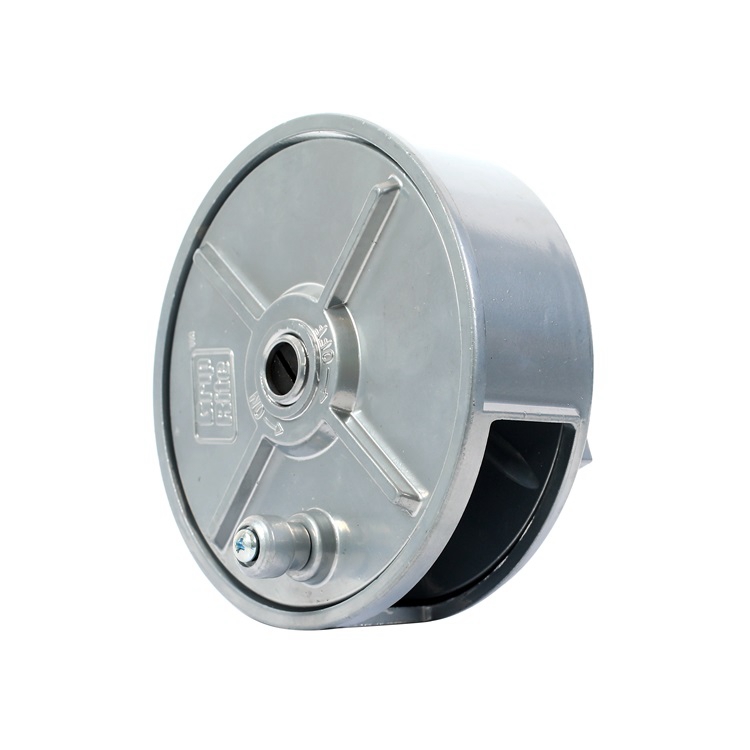anchor bolt m18 manufacturer
Understanding M18 Anchor Bolts A Comprehensive Guide for Manufacturers
In the construction and engineering sectors, anchor bolts play a pivotal role in ensuring stability and safety. Among various sizes and types, the M18 anchor bolt stands out due to its versatility and robustness. This article delves into the specifications, applications, and manufacturing processes of M18 anchor bolts, providing insights for manufacturers and industry professionals alike.
What Are M18 Anchor Bolts?
M18 anchor bolts are heavy-duty fasteners that typically have a diameter of 18 millimeters. These bolts are primarily used to secure structures to concrete, ensuring they remain firmly in place under various load conditions. The M in M18 signifies that the bolt is a metric bolt, adhering to the ISO standards that govern bolt dimensions and tolerances.
Technical Specifications
M18 anchor bolts come in different lengths and finishes, which can affect their performance and suitability for various applications. Common materials used in manufacturing M18 anchor bolts include carbon steel and stainless steel, allowing for varied resistance to corrosion and mechanical stress. The tensile strength of these bolts is also crucial, typically ranging between 400 to 1,000 MPa depending on the grade of steel used.
Some key specifications to consider when manufacturing M18 anchor bolts include
- Diameter 18 mm - Grade Various grades (e.g., 4.6, 8.8 for carbon steel, and A2, A4 for stainless steel) - Coating Galvanized, zinc-plated, or plain finish to provide corrosion resistance - Length Custom lengths based on project requirements, typically ranging from 100 mm to 500 mm or more.
Common Applications
M18 anchor bolts are widely used in different construction scenarios, including
1. Structural Steel Connections M18 bolts are essential in securing steel structures to their foundations, providing stability to buildings, bridges, and other infrastructures. 2. Machinery Installation In industrial settings, M18 anchor bolts are used to mount heavy machinery to the floor, preventing movement during operation and ensuring safety.
3. Outdoor Fixtures These bolts are ideal for securing outdoor fixtures like light poles, signboards, and communication towers, where exposure to environmental factors demands robust fastening solutions.
anchor bolt m18 manufacturer

4. Earthquake-resistant Structures In seismic zones, M18 anchor bolts are critical for anchoring walls and supports, providing the necessary strength to withstand seismic forces.
Manufacturing Process
The manufacturing of M18 anchor bolts involves several steps, which must adhere to strict quality control standards to ensure safety and performance
1. Material Selection Choosing the right material based on project requirements and environmental conditions is fundamental.
2. Forging and Machining The raw materials are forged and then machined to achieve precise dimensions. The processes required can include turning, milling, and drilling to create features like threads and heads.
3. Heat Treatment To improve strength and ductility, anchor bolts typically undergo heat treatment. This process involves heating the bolts to a high temperature and then cooling them, which alters their microstructure.
4. Surface Treatment Depending on the application, M18 anchor bolts may receive surface treatments like galvanizing or coating to enhance corrosion resistance.
5. Quality Control Rigorous testing for tensile strength, dimension accuracy, and surface integrity is conducted to ensure that the bolts meet relevant standards, such as ISO and ASTM specifications.
6. Packaging and Distribution Once manufactured, the bolts are packaged securely for shipment to minimize the risk of damage during transit.
Conclusion
As a manufacturer of M18 anchor bolts, understanding the technical specifications, applications, and manufacturing processes is essential for producing high-quality products that meet industry standards. The multi-faceted role of these bolts in construction highlights the importance of precision and quality in manufacturing. By adhering to best practices and continuously improving manufacturing techniques, companies can provide reliable anchor bolts that ensure the safety and stability of structures in which they are used. With the growing demands in construction and infrastructure development, manufacturers must stay ahead of innovations and market needs to remain competitive in this vital sector.
-
The Durability and Versatility of Steel Wire
NewsJun.26,2025
-
The Best Iron Nails for Your Construction Projects
NewsJun.26,2025
-
Strengthen Your Projects with Durable Metal Stakes
NewsJun.26,2025
-
Get the Job Done Right with Duplex Nails
NewsJun.26,2025
-
Explore the Versatility and Strength of Metal Mesh
NewsJun.26,2025
-
Enhance Your Security with Razor Wire
NewsJun.26,2025














